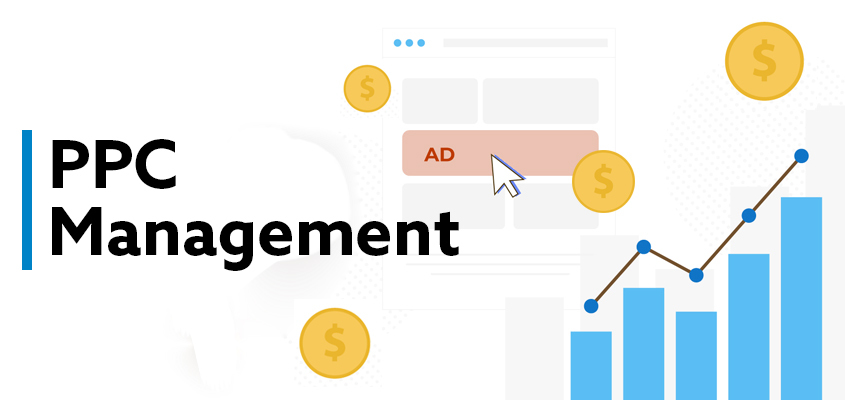PPC Management: The Foundation of any Successful Online Marketing Campaign

In today’s digital landscape, businesses are constantly striving to make their mark in the online world. With millions of websites vying for attention, it can be challenging to stand out from the crowd. That’s where Pay-Per-Click (PPC) advertising comes into play. PPC has become an indispensable tool for businesses to drive targeted traffic, increase brand visibility, and generate leads. However, to harness the full potential of PPC, effective PPC management is essential. In this blog, we will explore why PPC management is the foundation of any successful online marketing campaign.
What is PPC Management?
PPC management refers to the process of overseeing and optimizing pay-per-click advertising campaigns. It involves various tasks such as keyword research, ad creation, bid management, monitoring performance metrics, and making data-driven decisions to achieve optimal results. Skilled PPC managers understand the intricacies of different advertising platforms, industry trends, and customer behavior, allowing them to maximize the return on investment (ROI) for businesses.
Benefits of PPC Management
- Targeted Advertising: PPC campaigns provide businesses with the ability to target specific demographics, locations, and keywords relevant to their products or services. A well-managed PPC campaign ensures that your ads are displayed to the right audience, increasing the chances of attracting qualified leads and potential customers.
- Cost Control: PPC advertising allows businesses to set a budget and only pay when someone clicks on their ads. However, without proper management, campaigns can quickly become cost-ineffective. Skilled PPC managers continuously monitor and adjust bids, ad performance, and other metrics to ensure that your budget is allocated wisely and generates the desired results.
- Enhanced Brand Visibility: PPC advertising, when managed effectively, can significantly enhance your brand’s visibility in search engine results pages (SERPs). By appearing at the top of search results, businesses can increase brand awareness, establish credibility, and outshine competitors.
- Immediate Results: Unlike organic search engine optimization (SEO), which takes time to show results, PPC campaigns can deliver immediate visibility and traffic. With proper management, businesses can create compelling ads, optimize landing pages, and start driving targeted traffic to their website in a short span of time.
- Measurable and Actionable Insights: PPC platforms provide a wealth of data and analytics that can offer valuable insights into campaign performance. PPC managers leverage this data to identify trends, track conversions, measure ROI, and make data-driven decisions to improve campaign effectiveness continually.
- Flexibility and Scalability: PPC campaigns offer flexibility and scalability that traditional advertising methods lack. PPC managers can quickly adapt to market changes, adjust bids, add or remove keywords, and refine targeting to optimize campaign performance. This agility allows businesses to stay ahead of the competition and maximize their online marketing efforts.
Conclusion
In the fiercely competitive online world, PPC management is the bedrock of a successful online marketing campaign. With the right expertise and continuous optimization, PPC campaigns can drive targeted traffic, generate leads, and increase brand visibility. By leveraging the power of PPC management, businesses can make the most of their advertising budgets, outperform competitors, and achieve their marketing goals. So, if you’re looking to amplify your online presence, consider investing in effective PPC management to pave the way for success.
Faqs:
Q: What is the difference between PPC and SEO?
A: PPC (Pay-Per-Click) and SEO (Search Engine Optimization) are two different online marketing strategies. PPC involves paying for ads to appear in search engine results or on other platforms, and businesses are charged each time a user clicks on their ad. SEO, on the other hand, focuses on optimizing a website’s content and structure to improve its organic (unpaid) visibility in search engine results. While PPC offers immediate visibility and control over ad placement, SEO takes time to show results but can provide long-term organic traffic.
Q: How can I measure the success of my PPC campaign?
A: The success of a PPC campaign can be measured through various key performance indicators (KPIs). These include click-through rate (CTR), conversion rate, cost per conversion, return on ad spend (ROAS), and overall return on investment (ROI). By analyzing these metrics, you can assess the effectiveness of your campaign, identify areas for improvement, and make data-driven decisions to optimize your PPC strategy.
Q: Should I hire a PPC management agency or manage it in-house?
A: The decision to hire a PPC management agency or manage it in-house depends on factors such as budget, expertise, and available resources. Hiring a PPC management agency can provide access to skilled professionals who specialize in optimizing PPC campaigns. They can offer strategic insights, industry knowledge, and experience in managing various PPC platforms. On the other hand, managing PPC in-house gives you more control over the process and can be cost-effective if you have the necessary expertise within your team. It’s essential to evaluate your specific needs and capabilities before deciding on the best approach for your business.
Q: How long does it take to see results from a PPC campaign?
A: The timeframe for seeing results from a PPC campaign can vary depending on factors such as competition, budget, targeting, and campaign optimization. While some campaigns may start generating immediate results, it generally takes a few weeks to gather sufficient data, make necessary adjustments, and optimize the campaign for optimal performance. It’s important to note that PPC is an ongoing process that requires continuous monitoring, testing, and refinement to achieve sustained success.
Q: Can PPC management benefit small businesses?
A: Absolutely! PPC management can be highly beneficial for small businesses. It provides an opportunity to compete with larger competitors on a level playing field, as ad placement is determined by factors such as relevance and bid amount rather than company size. PPC allows small businesses to target specific audiences, control their budget, and measure the impact of their advertising efforts. With effective PPC management, small businesses can generate leads, increase brand visibility, and drive targeted traffic to their websites, ultimately contributing to their growth and success.
Q: What platforms can I use for PPC advertising?
A: There are several popular platforms available for PPC advertising, including Google Ads (formerly Google AdWords), Microsoft Advertising (formerly Bing Ads), Facebook Ads, Instagram Ads, Twitter Ads, LinkedIn Ads, and more. Each platform offers unique targeting options, reach, and audience demographics. The choice of platform depends on factors such as your target audience, campaign objectives, and budget. A well-executed PPC strategy may involve utilizing multiple platforms to reach a broader audience and maximize campaign effectiveness.




